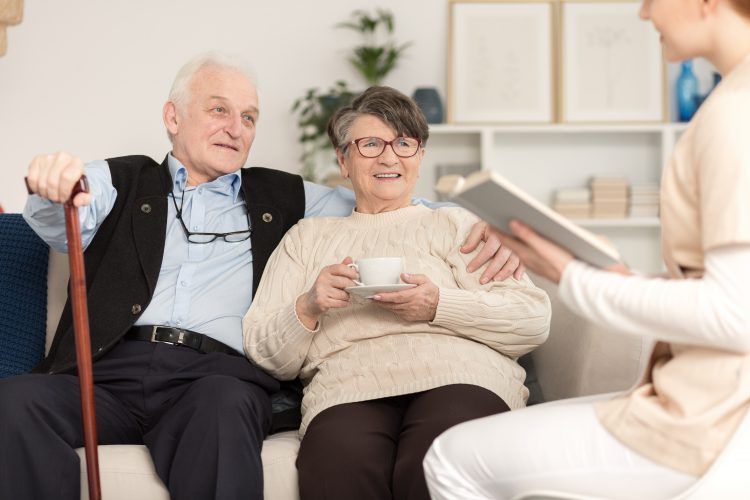Oftentimes, hearing about CMS policy changes on the news can make you wary. But this year the news regarding upcoming changes to Medicare Advantage policy is both welcome and exciting! For the first time, non-skilled in-home care services will be allowed as a supplemental benefit for Medicare Advantage (MA) plans. That means services provided by in-home care providers (like the talented folks who work for AmeriBest Home Care) could be covered by a host of different Medicare Advantage plans, beginning in 2019.
This is a very big deal for in-home care providers and the people that rely on them. Never before has CMS allowed supplemental benefits to include daily maintenance provided by non-skilled, in-home providers under Medicare Advantage plans. Yet in the announcement made in April, CMS declared that they are re-thinking and expanding the definition of what “primarily health-related” means as it relates to supplemental benefits. Where previously “primarily health-related” pertained to care given only by skilled nurse staff or other health care providers, the new policy will extend to encompass daily maintenance care supplied by non-skilled caregivers. “Under the new definition, the agency will allow supplemental benefits if they compensate for physical impairments, diminish the impact of injuries or health conditions, and/or reduce avoidable emergency room utilization,” a CMS representative announced.
The policy change is welcome news for Medicare Advantage users, a population that is rapidly growing. In fact, according to CMS data, nearly one-third of Medicare beneficiaries in 2015 were participants in Medicare Advantage, a figure that is projected to continue growing over the coming years. Payors also seem to be embracing the change, expressing a willingness and eagerness to cover non-skilled care if it means keeping people out of hospitals and emergency rooms.
Tracy Moorehead, a CEO of industry group ElevatingHome, spoke on the issue at the Home Health Association’s National Leadership Conference in March. “[Home Health Providers] have greater flexibility than the fee-for-service providers do. They don’t have a homebound requirement in many cases. So they are tasked with full capitation, where they have an amount they are provided to care for a patient and they will do whatever they need to make sure that patient doesn’t cost them more money than necessary. And if that includes private duty services, then I’m sure a plan is more than ready to pay for that.” Indeed, as the population of dual-eligible patients qualifying for both Medicare and Medicaid expands, plans have increased incentive to cover personal services in response to keep costs low and prohibit unnecessary hospital visits. While Humana, UnitedHealthcare, and Aetna were some of the first to adopt this new move towards embracing home health (establishing the relationship even before CMS’s policy change announcement), other insurance providers are beginning to follow suit.
Upon full policy implementation in 2019, Medicare Advantage plans en masse should be willing, eager, and excited about supplemental benefits that extend to non-skilled caregivers. And for the thousands of Medicare Advantage users that have turned to AmeriBest Home Care for loving and thoughtful provision of in-home care, this is great news. As we continue to provide exceptional care to our clients and exceptional training and support to our employees, Medicare Advantage’s embrace of our services as part of supplemental benefits only proves the indelible value and importance of our work in people’s lives.


